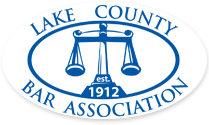Special Needs Planning
Navigating The Complexities Of Special Needs To Protect Your Loved One
How To Leave Assets For Your Special Needs Child
Estate planning for a family with special needs children comes with a complex set of financial, social, and medical issues that some lawyers are ill-equipped to handle.
We at Family Legacy Planning are dedicated to ensuring your child with special needs will be well taken care of when you are no longer able to serve as their primary caregiver.
We offer a variety of estate planning tools and strategies designed to accommodate the unique circumstances presented by children with special needs and their families.
We can help you pass on the financial assets needed for your child to live a rich quality of life without jeopardizing their eligibility for government benefits. We will also assist you in finding and appointing a trusted guardian and/or trustee to look after them in the event of your death or incapacity. And we will help with locating the best residential opportunities and identifying the best means to pay for them.
Get The Best-Selling Book On Legal Planning For Busy Parents – Our Free Gift To You

A Fast, Fun, Friendly – And Essential – Guide to Legal Planning for Busy Parents
Get this best-selling book for FREE.
Special Needs Trusts
One “Catch-22” situation that typically arises in estate planning for those with special needs is how to leave enough money to pay for the massive amount of care and support a special needs loved one typically needs throughout their lifetime, while not disqualifying them from government benefits like Medicaid and Supplemental Social Security Income.
If you leave a large lump sum of money directly to a special needs child, immediately there are concerns about how that might impact governmental assistance and whether your child is capable of managing finances on their own.
Fortunately, we have an estate planning tool called a “special needs trust” designed to provide supplemental financial resources for the child with physical or developmental disabilities without affecting their eligibility for public healthcare and income assistance benefits.
This said, the rules for such trusts are quite complicated.
For instance, funds from a special needs trust cannot be distributed directly to the disabled beneficiary and must be disbursed to a third party who is responsible for providing the goods and services your special needs child will need to maintain a comfortable lifestyle.
Even once you have established a special needs trust, the care and attention we pay to your special needs child is not over. We know that your child’s financial and emotional requirements will change over time, sometimes dramatically. And the laws governing public benefits change over time.
Given this, it is vital to work with an experienced special needs attorney who can create a comprehensive special needs trust that is both properly structured and appropriate for your child’s specific situation.
Special Needs Planning And Trusts
If you need estate planning for your child with Down Syndrome, autism, cerebral palsy, or any other developmental or intellectual disability, we are here to help you.
We will help you develop a sustainable living plan for your child with special needs that will provide them with the finances they need to live a full life, while preserving their access to government benefits.
Free Report
No Time For Mistakes
Learn the six major mistakes Families Make when Choosing An Estate Planning Attorney...
And how to make a loving choice for your family
Let me help you protect the people and things you love to make sure they stay out of court and out of conflict.
Enter your name and email address so we can send it to you. We love your privacy — we will never spam you.





Menu
Contact Us
Family Legacy Planning
Eustis Office
600 Jennings Avenue
Eustis, FL 32726
Lake Mary Office
1525 International Pkwy, STE 4021
Lake Mary, FL 32746
Groveland Office
250 S. Main Avenue, Groveland, FL 34736
Leesburg Office
1330 Citizens Boulevard, Suite #404, Leesburg, FL 34748
Copyright © 2025 Family Legacy Planning All Rights Reserved | Privacy Policy | Cookie Policy
DISCLAIMER: No information you obtain from this website or its content is legal advice, nor is it intended to be. You should consult an attorney for individualized advice regarding your own situation. No attorney-client relationship is intended or formed by your viewing this website or downloading and using the content, forms, tips or information kits found on this website. No attorney-client relationship is intended or formed without a fully-executed, written agreement to enter into such a relationship. Client testimonials or endorsements do not constitute a guarantee, warranty, or prediction regarding the outcome of your legal matter.
